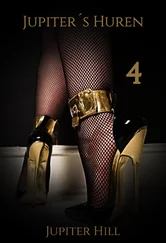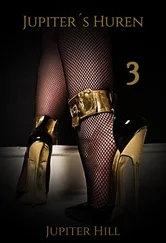Constance Woolson - Jupiter Lights
Здесь есть возможность читать онлайн «Constance Woolson - Jupiter Lights» — ознакомительный отрывок электронной книги совершенно бесплатно, а после прочтения отрывка купить полную версию. В некоторых случаях можно слушать аудио, скачать через торрент в формате fb2 и присутствует краткое содержание. Жанр: foreign_prose, на английском языке. Описание произведения, (предисловие) а так же отзывы посетителей доступны на портале библиотеки ЛибКат.
- Название:Jupiter Lights
- Автор:
- Жанр:
- Год:неизвестен
- ISBN:нет данных
- Рейтинг книги:4 / 5. Голосов: 1
-
Избранное:Добавить в избранное
- Отзывы:
-
Ваша оценка:
- 80
- 1
- 2
- 3
- 4
- 5
Jupiter Lights: краткое содержание, описание и аннотация
Предлагаем к чтению аннотацию, описание, краткое содержание или предисловие (зависит от того, что написал сам автор книги «Jupiter Lights»). Если вы не нашли необходимую информацию о книге — напишите в комментариях, мы постараемся отыскать её.
Jupiter Lights — читать онлайн ознакомительный отрывок
Ниже представлен текст книги, разбитый по страницам. Система сохранения места последней прочитанной страницы, позволяет с удобством читать онлайн бесплатно книгу «Jupiter Lights», без необходимости каждый раз заново искать на чём Вы остановились. Поставьте закладку, и сможете в любой момент перейти на страницу, на которой закончили чтение.
Интервал:
Закладка:
The vehicle in question was a long-bodied, two seated wagon, with a square box behind, which opened at the back like the box of a carrier’s cart; its hue was the liveliest pea green.
“Dickson had no business to give it to us; it was a damned impertinence!” said the judge, with a snort.
“Don’t spoil your voice, when you’ve got to sing to-night, grandpa,” remarked Cicely. “And you will have to lead out Miss Leontine – who will sing ‘Waiting.’”
The judge glanced at Miss Leontine. He could not repress a grin.
But tall Miss Leontine remained amiable, she had never heard of “Waiting.” In any case she seldom penetrated jokes; they seemed to her insufficiently explained; often, indeed, abstruse. She was fifty-two, and very maidenly; her bearing, her voice, her expression, were all timidly virginal, as were also the tints of her attire, pale blues and lavenders, and faint green. Her face bore a strong resemblance to the face of a camel; give a camel a pink-and-white complexion, blue eyes, and light-brown hair coming down in flat bands on each side of its long face, and you have Miss Leontine. She was extraordinarily tall – she attained a stature of nearly six feet. Her step, as if conscious of this, was apologetic; her long narrow back leaned forward as though she were trying to reduce her height in front as she came towards one. She wore no crinoline; her head was decked with a large gypsy hat, from which floated a blue tissue veil.
The little party of four – Eve, Cicely, the judge, and Miss Leontine – with Master Jack, had driven from Gary Hundred to Bellington; their hostess, Cousin Sarah Cray, had an old horse, and this wagon had been borrowed from Dickson, the village grainer (who had so mistakenly saved the circus paint); it would be a pleasant excursion in itself, and it would be good for Jack – which last was the principal point with them all.
For the much longer excursion from Abercrombie Island to this inland South Carolina village had been taken on Jack’s account; the attack of croup had left him with a harassing cough, a baby’s little cough, which is so distressing to the ears of those who love him. Eve had walked about, day and night, carrying him in her arms, his languid head on her shoulder; she could not bear to see how large his eyes looked in his little white face; she did not sleep; she could scarcely speak.
“We might go to Cousin Sarah Cray’s for a while, away from the coast,” Cicely suggested. She was always present when Eve walked restlessly to and fro; but she did not interfere, she let Eve have the child.
Eve had no idea who or where was Cousin Sarah Cray, but she agreed to anything that would take Jack away from the coast. It was very cold now at Romney; the Sound was dark and rough all the time, the sea boomed, the winds were bitter. They had therefore journeyed inland, Jack and Eve, Cicely and her grandfather, leaving Miss Sabrina to guard the island-home alone.
When they reached Gary Hundred and the softer air, Jack began to revive; Eve too revived, she came back to daily life again. One of the first things she said was: “I ought not to be staying here, Cicely; you must let me go to the hotel; your cousin is not my cousin.”
“She’s Jack’s.”
“Do you mean by that that Jack must stay, and if he does, I shall? But it isn’t decent; here we have all descended upon her at a moment’s notice, and filled up her house, and tramped to and fro. She doesn’t appear to be rich.”
“We are all as poor as crows, but we always go and stay with each other just the same. As for Cousin Sarah Cray, she loves it. Of course we take her as we find her.”
“We do indeed!” was Eve’s thought. “It is all very well for you,” she went on, aloud. “But I am a stranger.”
“Cousin Sarah Cray doesn’t think so; she thinks you very near – a sister of her cousin.”
“If you count in that way, what families you must have! But why shouldn’t we all go to the hotel, and take her with us? There’s an idea.”
“For one reason, there’s no hotel to go to,” responded Cicely, laughing.
They continued, therefore, to stay with Cousin Sarah Cray; they had been there ten days, and Jack was so much better that Eve gladly accepted her obligations, for the present. She accepted, too, the makeshifts of the rambling housekeeping. But if the housekeeping was of a wandering order, the welcome did not wander – it remained fixed; there was something beautiful in the boundless affection and hospitality of poverty-stricken Cousin Sarah Cray.
Bellington was a ruin. In the old days it had been the custom of the people of Gary Hundred, and the neighboring plantations, to drive thither now and then to spend an afternoon; the terraces and fish-ponds were still to be seen, together with the remains of the Dutch flower-garden, and the great underground kitchens of the house, which had been built of bricks imported from Holland a hundred and twenty years before. In the corner of one of the fields bordering the river were the earthworks of a Revolutionary fort; in a jungle a quarter of a mile distant there was a deserted church, with high pews, mouldering funeral hatchments, and even the insignia of George the Third in faded gilt over the organ-loft. Bellington House had been destroyed by fire, accidentally, in 1790. Now, when there were in the same neighborhood other houses which had been destroyed by fire, not accidentally, there was less interest in the older ruin. But it still served as an excuse for a drive, and drives were excellent for the young autocrat of the party, to whom all, including Miss Leontine, were shamelessly devoted.
The judge did his duty as guide; he had visited Bellington more times than he could count, but he again led the way (with appropriate discourse) from the fish-ponds to the fort, and from the fort to the church, Miss Leontine, in her floating veil, ambling beside him.
When the sun began to decline they returned to their pea-green wagon. The judge walked round it afresh. Then he turned away, put his head over a bush, and muttered on the other side of it.
“What is he saying?” Eve asked.
“I am afraid ‘cuss words,’ as the darkies call them,” answered Cicely, composedly. “He is without doubt a very desperate old man.”
Miss Leontine looked distressed, she made a pretext of gathering some leaves from a bush at a little distance; as she walked away, her skirt caught itself behind at each step upon the tops of her prunella boots, which were of the pattern called “Congress,” with their white straps visible.
“She is miserable because I called him that,” said Cicely; “she thinks him perfect. Grandpa, I have just called you a desperate old man.”
But the judge had resumed his grand manner; he assisted the ladies in climbing to their high seats, and then, mounting to his own place, he guided the horse down the uneven avenue and into the broad road again. The cotton plantations of this neighborhood had suffered almost as much as the rice fields of Romney: they had been flooded so often that much of the land was now worthless, disintegrated and overgrown with lespedeza. They crossed the river (which had done the damage) on – or rather in – a long shaking wooden bridge, covered and nearly dark, and guarding in its dusky recesses a strong odor of the stable. Beyond it the judge had an inspiration: he would go across the fields by one of the old cotton-tracks, thus shortening the distance by more than two miles.
“Because you’re ashamed of chanted Cicely on the back seat.
‘Our pea-green wagon, our wagon of green,
Lillibulero, bullen-a-la,’”
“Cecilia!” said the judge, with dignity.
Eve sat beside him; courteously he entertained her. “Have you ever reflected, Miss Bruce, upon the very uninteresting condition of the world at present? Everything is known. Where can a gentleman travel now, with the element of the unexpected as a companion? There are positively no lands left unvulgarized save the neighborhood of the Poles.”
Читать дальшеИнтервал:
Закладка:
Похожие книги на «Jupiter Lights»
Представляем Вашему вниманию похожие книги на «Jupiter Lights» списком для выбора. Мы отобрали схожую по названию и смыслу литературу в надежде предоставить читателям больше вариантов отыскать новые, интересные, ещё непрочитанные произведения.
Обсуждение, отзывы о книге «Jupiter Lights» и просто собственные мнения читателей. Оставьте ваши комментарии, напишите, что Вы думаете о произведении, его смысле или главных героях. Укажите что конкретно понравилось, а что нет, и почему Вы так считаете.












